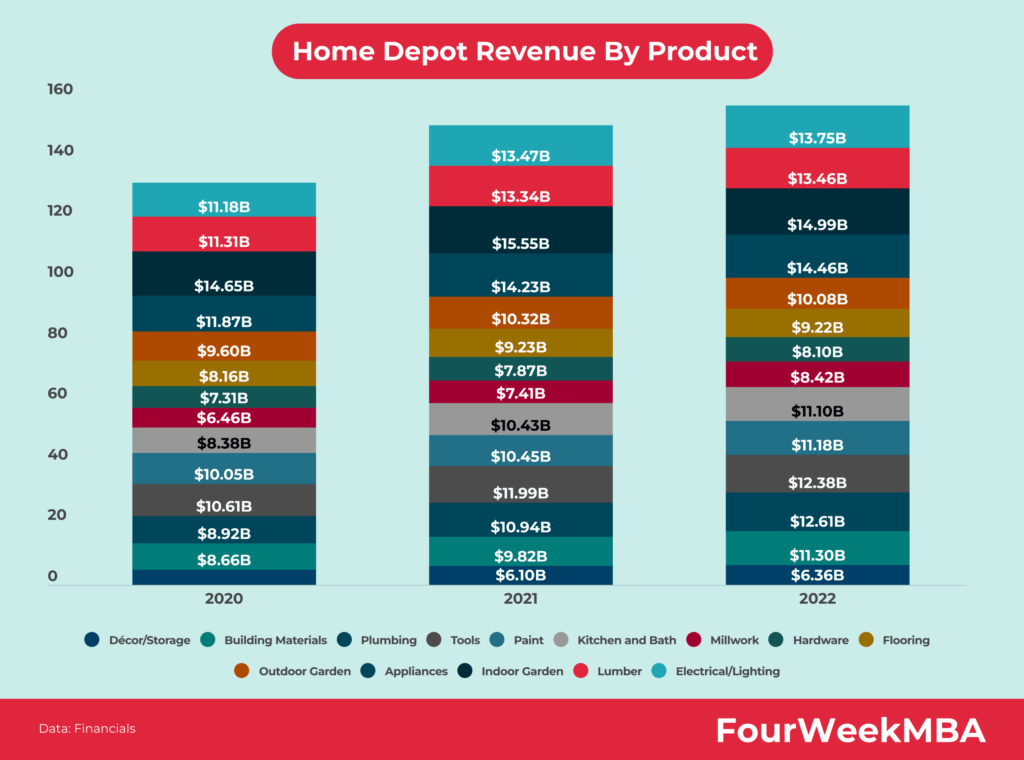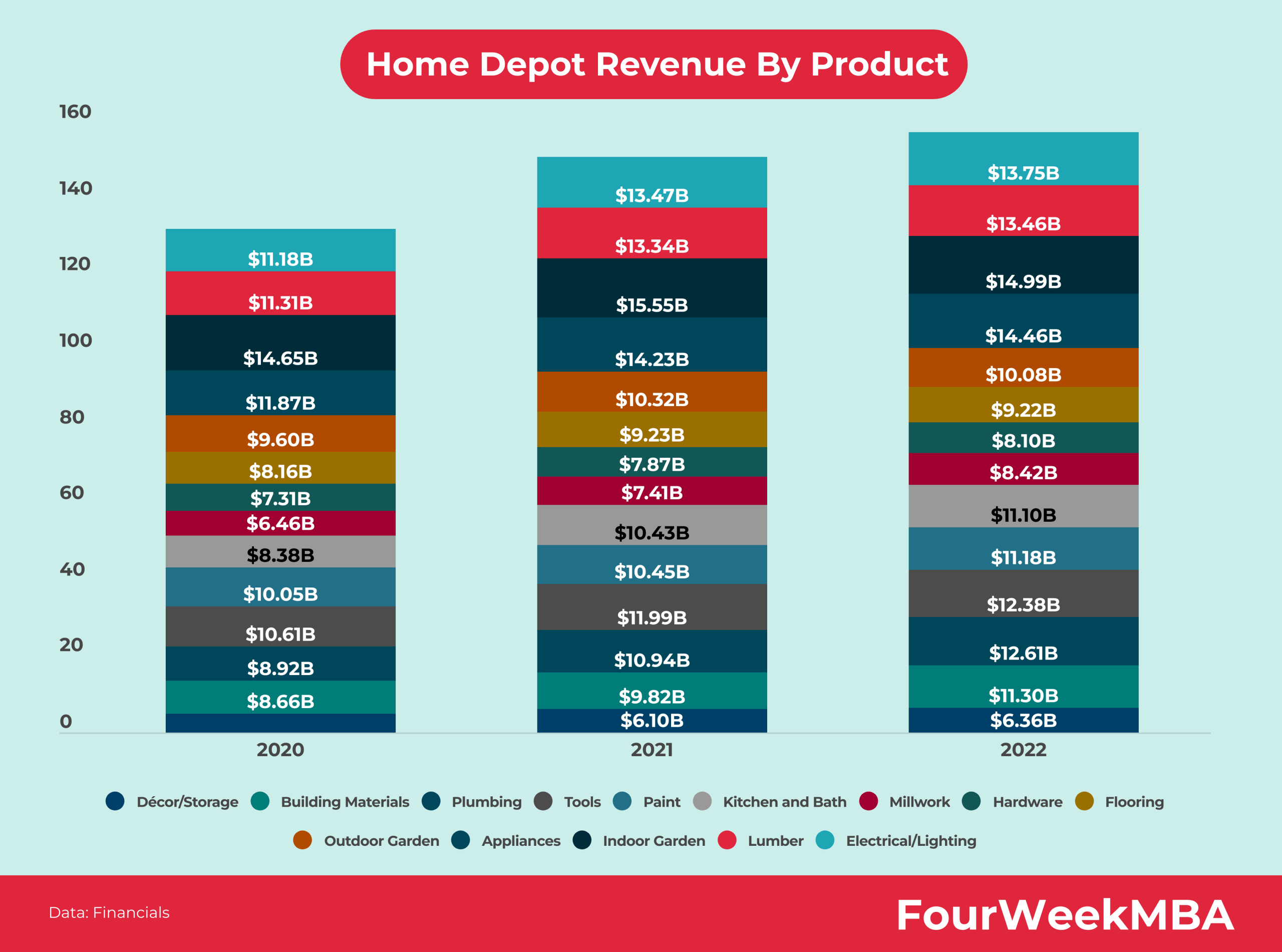
Home Depot Net Worth: A Comprehensive Analysis of HD’s Financial Standing
Understanding the Home Depot net worth is crucial for investors, analysts, and anyone interested in the financial health of this retail giant. As one of the leading home improvement retailers globally, Home Depot’s financial performance reflects broader trends in the housing market, consumer spending, and economic conditions. This article provides a comprehensive analysis of Home Depot net worth, exploring its key drivers, historical performance, and future outlook.
What is Net Worth?
Before diving into the specifics of Home Depot net worth, it’s important to understand what net worth represents. Net worth is a fundamental financial metric calculated by subtracting a company’s total liabilities from its total assets. It offers a snapshot of a company’s overall financial position, indicating the value that would theoretically be returned to shareholders if all assets were liquidated and all debts were paid off. A positive net worth signifies that a company’s assets exceed its liabilities, suggesting financial stability. Conversely, a negative net worth indicates that a company’s liabilities exceed its assets, which could signal financial distress. Analyzing Home Depot’s net worth over time provides valuable insights into its financial management and long-term sustainability.
Calculating Home Depot’s Net Worth
To calculate Home Depot net worth, we need to examine the company’s balance sheet, which is a financial statement that reports a company’s assets, liabilities, and equity at a specific point in time. The formula is simple:
Net Worth = Total Assets – Total Liabilities
Home Depot’s annual reports and SEC filings provide detailed information on its assets and liabilities. Assets include items such as cash, accounts receivable, inventory, property, plant, and equipment (PP&E), and intangible assets. Liabilities include accounts payable, debt obligations, deferred revenue, and other financial obligations.
By subtracting the total liabilities from the total assets, we arrive at the Home Depot net worth. This figure is a key indicator of the company’s financial strength and its ability to meet its obligations.
Historical Trends in Home Depot Net Worth
Tracking the historical trends in Home Depot net worth reveals important insights into the company’s financial performance over time. Several factors can influence these trends, including:
- Revenue Growth: Increased sales generally lead to higher asset values and, consequently, a higher net worth.
- Profitability: Strong profitability allows the company to accumulate retained earnings, which contribute to its equity and net worth.
- Debt Management: Prudent debt management helps maintain a healthy balance sheet and a positive net worth.
- Share Repurchases and Dividends: While returning value to shareholders, these activities can impact equity and, therefore, net worth.
- Economic Conditions: Macroeconomic factors such as housing market trends, interest rates, and consumer confidence can significantly affect Home Depot’s financial performance and Home Depot net worth.
Analyzing these factors in conjunction with the historical data on Home Depot’s net worth provides a more nuanced understanding of the company’s financial trajectory. Any substantial changes in Home Depot net worth warrant a deeper investigation into the underlying causes.
Factors Influencing Home Depot’s Asset Value
Several key components contribute to Home Depot’s asset value, which directly impacts its Home Depot net worth:
Property, Plant, and Equipment (PP&E)
Home Depot operates a vast network of retail stores, distribution centers, and other facilities. The value of these properties represents a significant portion of its total assets. Investments in new stores, renovations, and technological upgrades can increase the value of PP&E, thereby boosting its Home Depot net worth.
Inventory Management
Effective inventory management is crucial for maintaining a healthy asset value. Home Depot’s ability to efficiently manage its inventory, minimize obsolescence, and optimize turnover rates directly impacts its financial performance and Home Depot net worth. [See also: Home Depot Inventory Management Strategies]
Cash and Cash Equivalents
Home Depot’s cash reserves provide financial flexibility and contribute to its overall asset value. A strong cash position allows the company to invest in growth opportunities, weather economic downturns, and return value to shareholders. Increases in cash holdings can positively impact Home Depot net worth.
Factors Influencing Home Depot’s Liabilities
Home Depot’s liabilities, which are obligations the company owes to others, also play a crucial role in determining its Home Depot net worth:
Debt Obligations
Home Depot, like many large corporations, utilizes debt financing to fund its operations and growth initiatives. The level of debt outstanding can significantly impact its liabilities and, consequently, its net worth. Prudent debt management is essential for maintaining a healthy financial position. Excessive debt can strain the company’s resources and negatively affect Home Depot net worth.
Accounts Payable
Accounts payable represent the amounts Home Depot owes to its suppliers and vendors. Efficient management of accounts payable is important for maintaining strong relationships with suppliers and optimizing cash flow. Changes in accounts payable can impact the company’s total liabilities and, therefore, its Home Depot net worth.
Deferred Revenue
Deferred revenue represents payments received for goods or services that have not yet been delivered. This liability reflects Home Depot’s obligation to provide those goods or services in the future. Changes in deferred revenue can affect the company’s total liabilities and, consequently, its Home Depot net worth.
Impact of Economic Conditions
The broader economic environment significantly influences Home Depot net worth. Factors such as housing market trends, interest rates, and consumer spending patterns can have a profound impact on the company’s financial performance.
Housing Market
The health of the housing market is closely linked to Home Depot’s success. Increased home sales and construction activity typically lead to higher demand for home improvement products and services, boosting the company’s revenue and profitability. Conversely, a slowdown in the housing market can negatively impact Home Depot’s financial performance and Home Depot net worth.
Interest Rates
Interest rates can affect Home Depot in several ways. Higher interest rates can increase the cost of borrowing, potentially impacting the company’s profitability and investment decisions. Additionally, higher mortgage rates can dampen housing demand, which can indirectly affect Home Depot’s sales and Home Depot net worth.
Consumer Spending
Consumer spending patterns play a critical role in Home Depot’s financial performance. Strong consumer confidence and increased disposable income typically lead to higher spending on home improvement projects, boosting the company’s revenue and profitability. Economic downturns and periods of uncertainty can negatively impact consumer spending and, consequently, Home Depot net worth.
Home Depot’s Strategies to Enhance Net Worth
Home Depot employs various strategies to enhance its Home Depot net worth, focusing on both increasing assets and managing liabilities:
- Revenue Growth Initiatives: Expanding its product offerings, improving the customer experience, and leveraging e-commerce to drive sales growth.
- Cost Management: Implementing cost-saving measures to improve profitability and increase retained earnings.
- Efficient Inventory Management: Optimizing inventory levels to minimize obsolescence and improve turnover rates.
- Strategic Investments: Investing in new stores, technology, and supply chain improvements to enhance its competitive advantage.
- Share Repurchases and Dividends: Returning value to shareholders while maintaining a healthy balance sheet.
Future Outlook for Home Depot Net Worth
The future outlook for Home Depot net worth depends on several factors, including the overall economic environment, the health of the housing market, and the company’s ability to execute its strategic initiatives. Analysts generally expect Home Depot to maintain a strong financial position, driven by its dominant market share, efficient operations, and commitment to customer service.
However, potential challenges include increased competition from online retailers, fluctuations in commodity prices, and economic uncertainties. Home Depot’s ability to navigate these challenges will be crucial for sustaining its financial performance and enhancing its Home Depot net worth over the long term.
Conclusion
Home Depot net worth is a vital indicator of the company’s financial health and long-term sustainability. By analyzing its assets, liabilities, and the factors that influence them, we gain a deeper understanding of Home Depot’s financial performance and its ability to create value for shareholders. The company’s strategic initiatives, efficient operations, and strong market position position it well for continued success in the years to come. Keeping a close eye on Home Depot net worth and the underlying drivers will provide valuable insights into the company’s financial trajectory.
